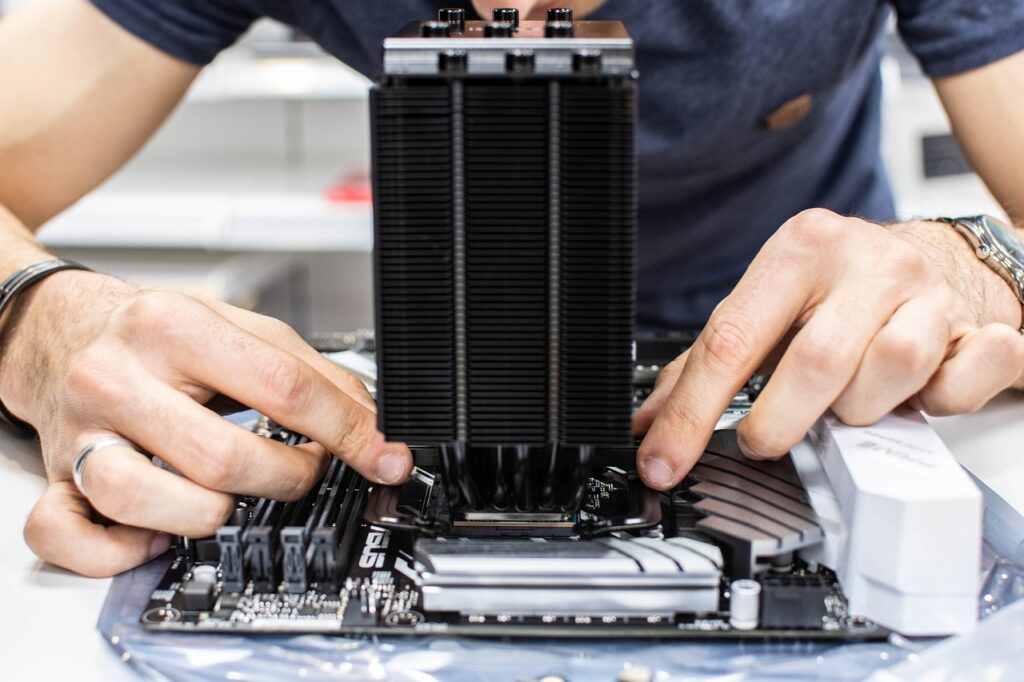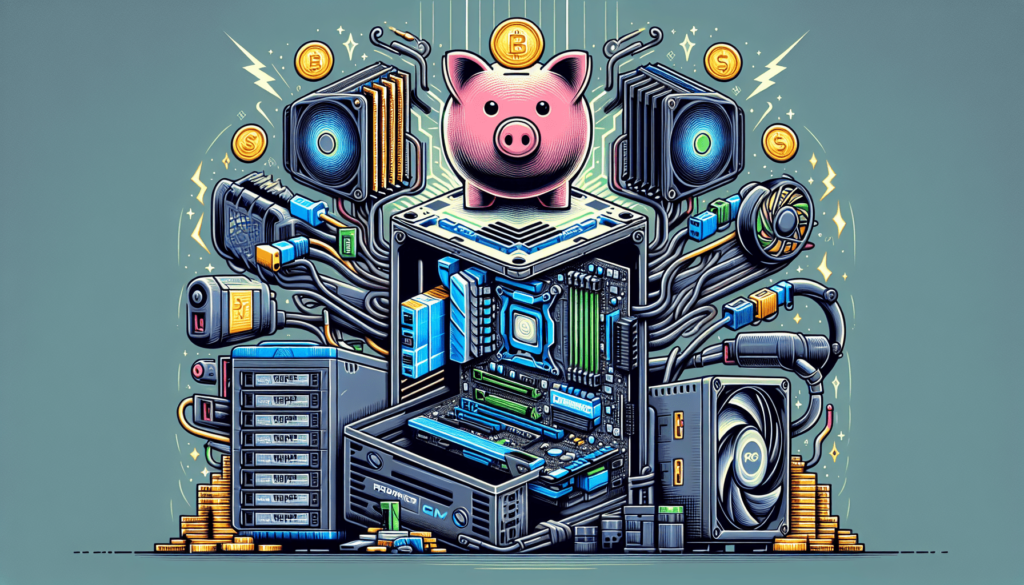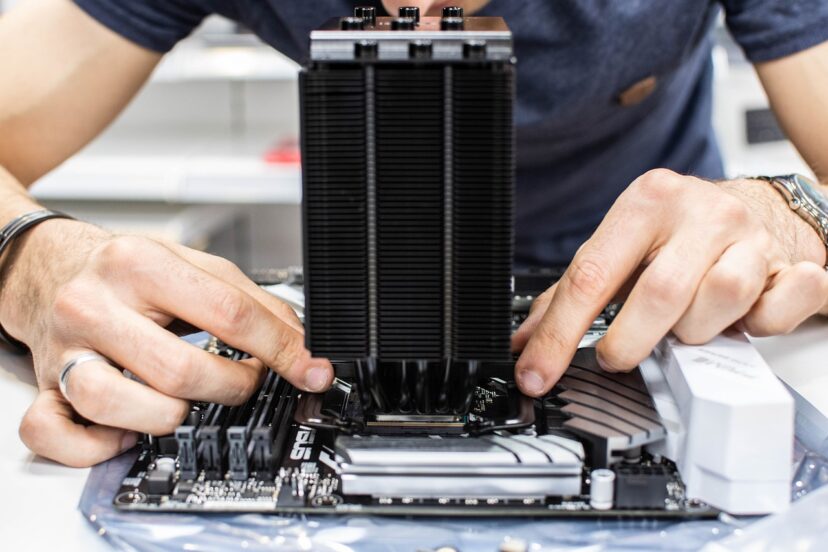How Do I Build A Budget Gaming PC?
Looking to enter the world of gaming but don’t want to break the bank? Look no further! In this article, we will guide you through the process of building a budget gaming PC. From selecting the right components to optimizing performance, we’ve got all the tips and tricks you need to get started. So grab your toolbox and join us on this exciting journey of creating your very own gaming rig without emptying your wallet.

Setting a Budget
Determine your budget limit
When building a budget gaming PC, it’s important to start by determining your budget limit. Decide on the maximum amount of money you are willing to spend on your PC build. This will help you make informed decisions when it comes to selecting components and avoid any unwanted surprises.
Consider future upgrades or expansions
While setting a budget for your gaming PC, it’s essential to consider any future upgrades or expansions you might want to make. Investing in a system that can accommodate future improvements will save you money in the long run. Consider components that offer flexibility and scalability, such as expandable RAM slots or multiple PCIe slots.
Research typical costs of necessary components
To ensure you are making the most of your budget, it’s important to research the typical costs of necessary components such as the processor, graphics card, RAM, and storage options. By understanding the average prices, you can determine an estimate of how much each component should cost and allocate your budget accordingly. This research will help you make informed purchasing decisions and avoid overspending on certain components.
Choosing a Processor
Determine your gaming requirements
The choice of a processor for your budget gaming PC largely depends on your gaming requirements. Consider the type of games you play and their system requirements. Are you mainly playing lightweight indie games or more demanding AAA titles? Understanding your gaming needs will help you select a processor that meets your performance expectations.
How Do I Build A Budget Gaming PC?
Consider the CPU’s performance and speed
When selecting a processor, it’s crucial to consider its performance and speed. Look for processors with higher clock speeds and more cores as they typically offer better gaming performance. However, keep in mind that higher-end processors come at a higher cost. Strike a balance between performance and affordability to make the most of your budget.
Find a compatible motherboard
To ensure compatibility between your processor and other components, it’s important to find a compatible motherboard. Consider the socket type and chipset of the processor you’ve chosen and find a motherboard that supports them. Additionally, check for features such as RAM slots, expansion slots, and connectors that meet your requirements and allow for future upgrades.
Selecting a Graphics Card
Understand the graphics card’s role in gaming
The graphics card plays a crucial role in gaming as it handles the processing and rendering of graphical elements. It directly impacts the visual quality and performance of your games. Investing in a decent graphics card is essential for an enjoyable gaming experience, even on a budget.
Look for a balance between performance and cost
When selecting a graphics card for your budget gaming PC, it’s important to strike a balance between performance and cost. Look for cards that offer reasonable performance within your budget constraints. Keep in mind that newer models tend to be more expensive, so consider previous generation cards that still offer solid performance.
Consider future gaming requirements
While you may have specific gaming requirements at the moment, it’s important to consider your future gaming needs as well. Gaming technology is constantly advancing, and newer games may require more powerful graphics cards. Investing in a graphics card that can handle future gaming requirements will save you from having to upgrade sooner than necessary.

Deciding on RAM
Determine the amount of RAM you need
The amount of RAM you need for your budget gaming PC depends on various factors. Consider the games you play and their system requirements, as well as any other tasks you might perform simultaneously, such as streaming or video editing. Most modern games recommend 8GB of RAM as a minimum, but 16GB or even 32GB can provide better performance and future-proof your system.
Consider the RAM’s frequency and speed
In addition to the amount of RAM, it’s important to consider the frequency and speed of the RAM modules. Higher frequencies and faster speeds result in better performance. However, keep in mind that the motherboard and processor must support the selected RAM’s frequency. Strike a balance between affordability and performance to make the most of your budget.
Choose a reputable brand
When it comes to RAM, it’s crucial to choose a reputable brand known for producing reliable and high-quality modules. Opt for brands that have a good track record in terms of compatibility, reliability, and customer support. This will ensure that you are investing in RAM modules that will last and perform optimally in your budget gaming PC.
Storage Options
Decide between SSD and HDD
When it comes to storage options for your budget gaming PC, you’ll typically have to decide between a Solid State Drive (SSD) and a Hard Disk Drive (HDD). SSDs offer faster data access and boot times, resulting in quicker game loading and overall system responsiveness. HDDs, on the other hand, offer larger storage capacity at a lower cost per gigabyte. Consider your budget and storage needs to make the right decision.
Consider storage capacity and performance
Regardless of whether you choose an SSD or an HDD, it’s important to consider the storage capacity and performance. Gaming nowadays can require a significant amount of storage, especially with large game files and updates. Evaluate your storage needs and choose a capacity that allows you to install your desired games while leaving room for other files. Additionally, consider the performance specifications of the chosen storage option to ensure smooth gameplay.
Explore options for additional storage
In addition to the primary storage option, it’s worth considering additional storage for your budget gaming PC. This might include external hard drives or network-attached storage (NAS) solutions for backup or archiving purposes. Assess your long-term storage needs and allocate part of your budget for additional storage options if necessary.
Power Supply Unit
Determine the power requirements of your components
To ensure a stable and reliable power supply for your budget gaming PC, it’s essential to determine the power requirements of your components. Consider the power draw of your processor, graphics card, RAM, storage devices, and any other components you plan to install. Use online calculators or consult the component manufacturers’ specifications to estimate your overall power consumption.
Choose a reliable PSU with sufficient wattage
When selecting a Power Supply Unit (PSU) for your budget gaming PC, it’s crucial to choose a reliable model with sufficient wattage. Look for PSUs from reputable brands that offer a good balance between affordability and quality. It is recommended to select a PSU with a wattage that comfortably exceeds your estimated power consumption to ensure stability and account for any future upgrades.
Consider future upgrades
Considering future upgrades is important when selecting a PSU for your budget gaming PC. If you plan on adding more components or upgrading existing ones in the future, make sure to choose a PSU with higher wattage to accommodate those changes. This will save you from having to replace the PSU when you decide to make upgrades down the line.
Selecting a Motherboard
Ensure compatibility with your chosen processor and other components
When selecting a motherboard for your budget gaming PC, it’s crucial to ensure compatibility with your chosen processor and other components. Research the socket type and chipset of your processor and find a motherboard that supports them. Additionally, check for compatibility with other components such as RAM modules, graphics cards, storage devices, and peripherals.
Consider expansion slots and connectors
To future-proof your budget gaming PC and allow for future upgrades, consider the number and type of expansion slots and connectors on the motherboard. These components allow you to add additional cards, drives, and peripherals. Evaluate your potential expansion needs and choose a motherboard that offers sufficient slots and connectors to accommodate them.
Research reputable brands
When it comes to motherboards, it’s important to research reputable brands known for producing reliable and high-quality products. Opt for brands that have a good track record in terms of compatibility, durability, and customer support. This will ensure that you are investing in a motherboard that will last and support your budget gaming PC effectively.
Choosing a Case
Consider size and form factor
When choosing a case for your budget gaming PC, consider the size and form factor that best suits your needs. Cases come in various sizes, ranging from mini-ITX to full-tower, each offering different advantages and limitations. Assess the available space for your PC setup and choose a case that fits comfortably within it while allowing for efficient cable management and component installation.
Evaluate cooling options
Proper cooling is essential for maintaining optimal performance and longevity of your budget gaming PC. Evaluate the cooling options provided by the case, such as fan mounts and radiator support. Ensure that the case has adequate airflow and ventilation for your components, especially if you plan on overclocking. Consider additional fans or liquid cooling solutions if necessary.
Look for ease of cable management and component installation
A well-managed cable system not only looks neat but also improves airflow and makes component installation and future upgrades easier. Look for cases with ample space behind the motherboard tray for cable routing and tie-down points to keep cables organized. Additionally, consider tool-less or easy-access features that simplify component installation and maintenance.
Peripheral Devices
Choose a gaming monitor with suitable specifications
When it comes to gaming, choosing a suitable monitor is crucial for an immersive and enjoyable experience. Consider the monitor’s size, resolution, refresh rate, and response time. Larger sizes, higher resolutions, and faster refresh rates provide a more visually stunning experience, but they can also increase costs. Determine your priorities and allocate your budget accordingly for the best gaming monitor within your means.
Select a gaming keyboard and mouse
Gaming keyboards and mice can significantly enhance your gaming experience. Look for keyboards with features such as customizable backlighting, macro keys, and dedicated gaming modes. For mice, consider factors such as programmable buttons, adjustable sensitivity, and ergonomic design. Choosing peripherals that suit your gaming preferences and budget will enhance your overall gaming performance.
Consider additional peripherals such as headset and controller
While a gaming monitor, keyboard, and mouse are essential peripherals, consider other devices that can further enhance your gaming experience. A good gaming headset allows for clear communication with teammates and immersive sound quality. Additionally, a gaming controller can provide better control and comfort for certain game genres. Allocate part of your budget for these additional peripherals if they align with your gaming preferences.
Operating System and Software
Decide on an operating system (Windows, Linux, etc.)
When building a budget gaming PC, it’s important to decide on the operating system (OS) you will be using. Windows is the most commonly used OS for gaming, thanks to its extensive game library and compatibility. However, Linux is a viable option for those looking for open-source alternatives. Consider your familiarity with the OS, game compatibility, and any specific software requirements before making a decision.
Consider necessary software and drivers
In addition to the OS, consider the necessary software and drivers required for your budget gaming PC. Research the system requirements of your games and any additional software you plan to use, such as video editing software or streaming tools. Ensure that your chosen OS supports these software requirements and that the necessary drivers are readily available.
Allocate budget for licensed software if applicable
If you require licensed software for tasks such as video editing or content creation, it’s important to allocate part of your budget for these expenses. Licensed software can add up in costs, so plan accordingly. Consider free alternatives or discounted student licenses if available to make the most of your budget.
Building a budget gaming PC can be an exciting and rewarding experience. By carefully considering and selecting the right components within your budget constraints, you can create a system that offers an enjoyable gaming experience while leaving room for future upgrades. Remember to research and compare prices, read reviews, and seek advice from experienced builders to make the most informed decisions. Happy gaming!




